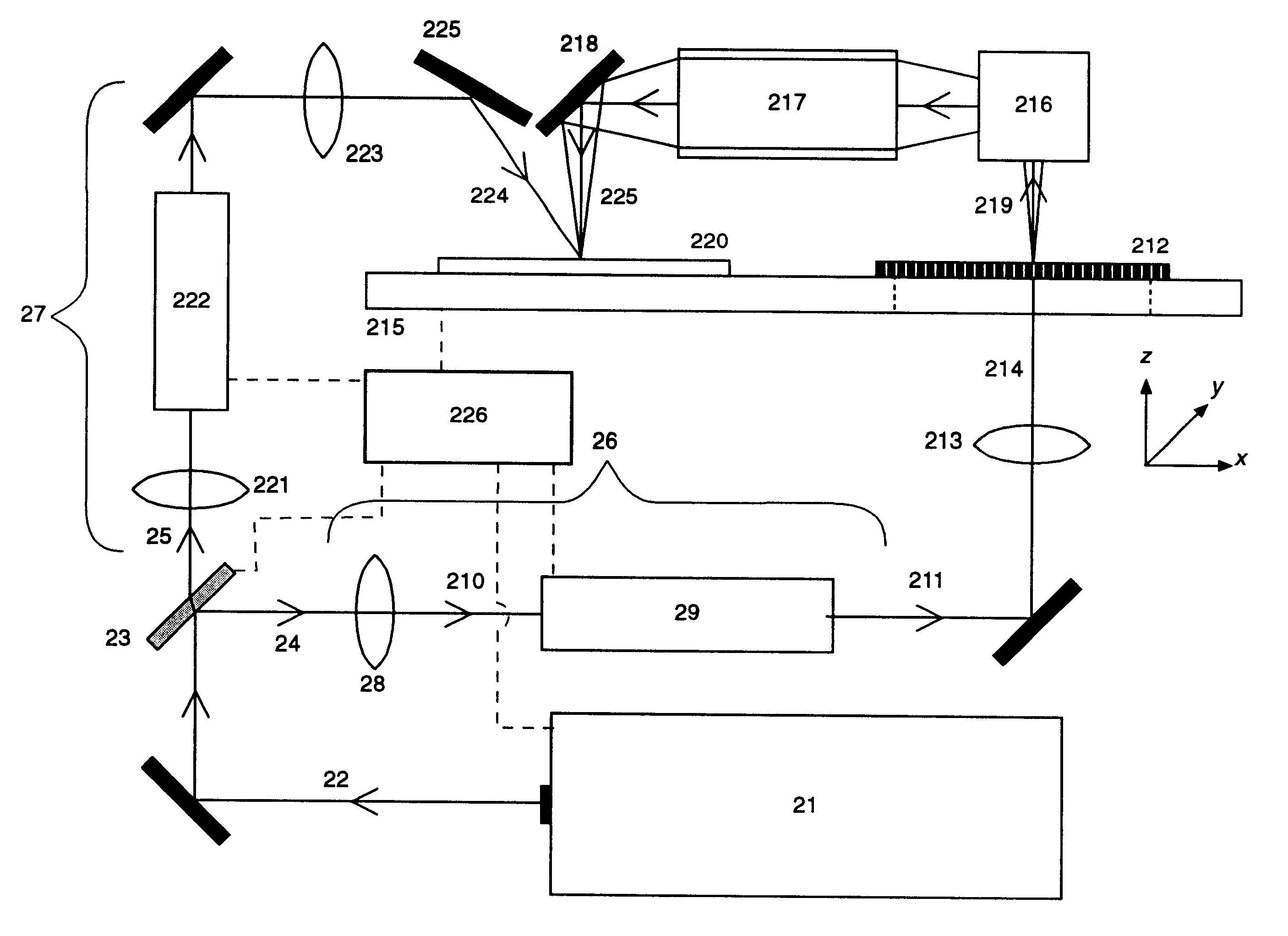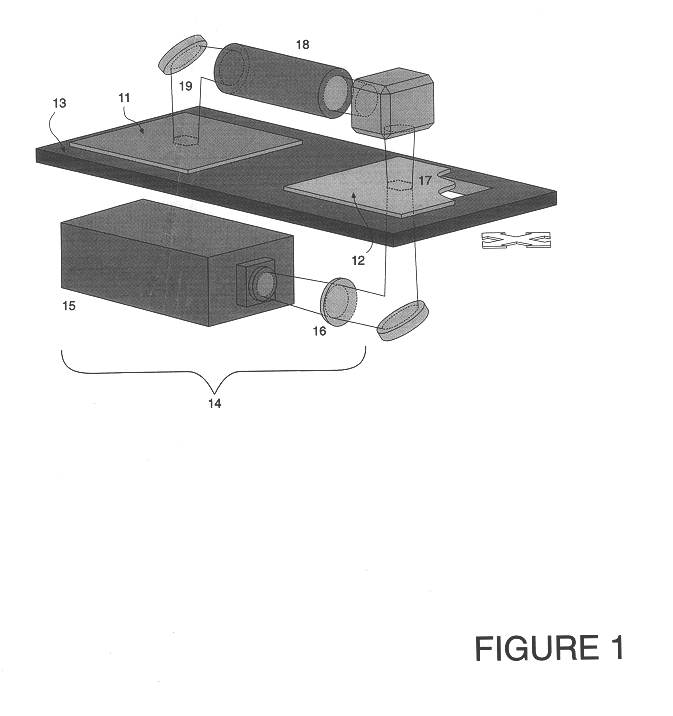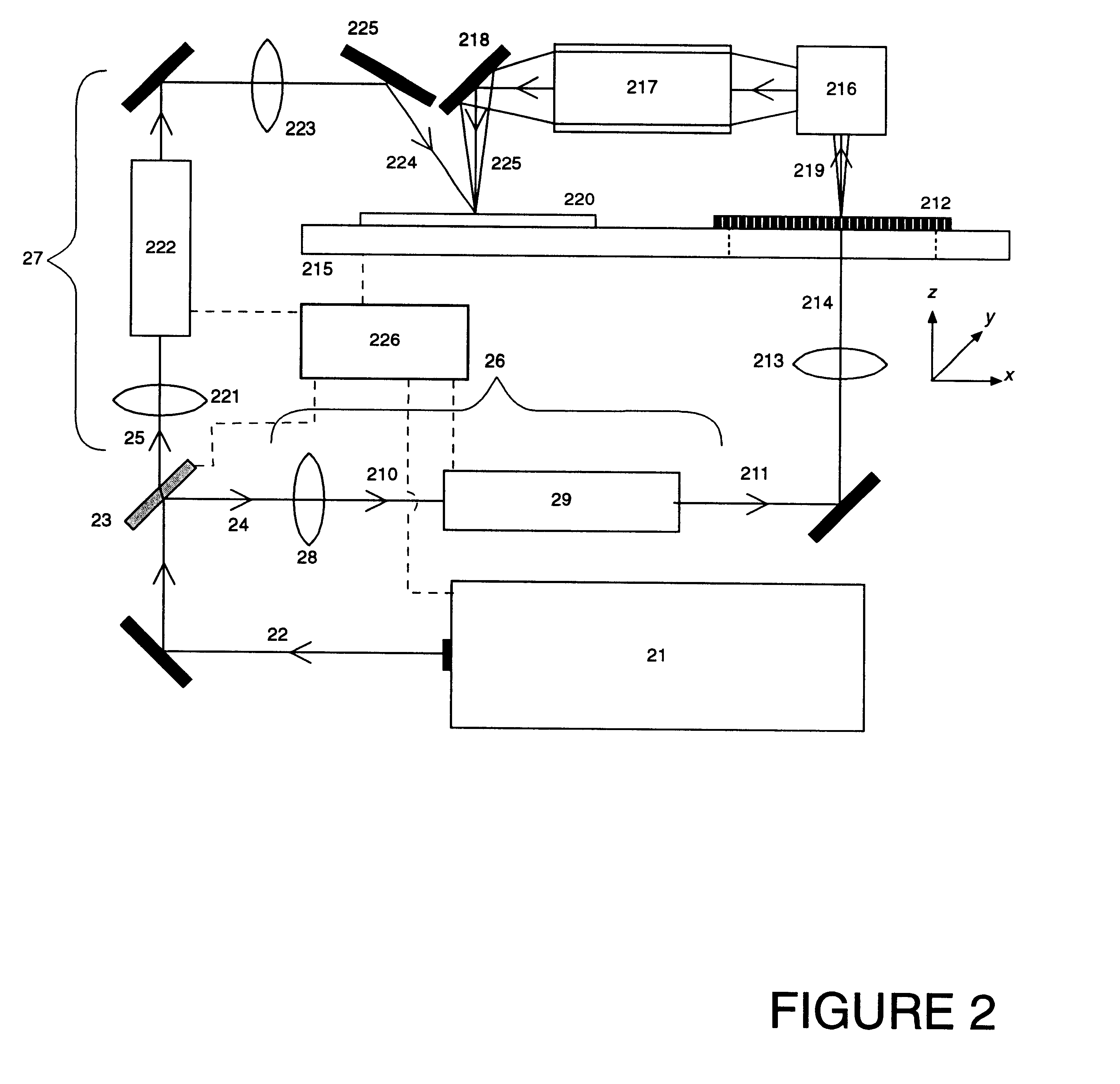Dual-beam materials-processing system
a material processing system and dual beam technology, applied in the field of dual beam materials processing system, can solve the problems of inability to deposit silicon films directly in high-quality crystalline state, chrome-on-quartz, failure of process, etc., and achieve the effect of reducing fluence through imaging system, prolonging mask life, and high fluen
- Summary
- Abstract
- Description
- Claims
- Application Information
AI Technical Summary
Benefits of technology
Problems solved by technology
Method used
Image
Examples
Embodiment Construction
FIG. 2 shows a preferred embodiment of the invention, a high-resolution, pulsed-laser irradiation tool for effecting localized physical changes to a substrate that is based on Anvik's large-area patterning technology: incorporating 1:1 imaging and a single-planar stage. It includes a laser 21, which is preferably a XeCl excimer laser operating at a wavelength of 308 nm with a nominal pulse duration of 30 ns FWHM and a pulse repetition rate that can be varied between one and several hundred pulses per second (Hz). The output beam 22 of the laser 21 passes through a beam-splitter 23, which is preferably a fused silica plate with a multi-layer dielectric coating designed to reflect a fixed portion of the beam, and to transmit the remainder. Beam-splitter 23 divides the laser beam between two optical branches: an imaging branch 24 and a non-imaging branch 25.
There are two illumination subsystems, 26 and 27, for the imaging and non-imaging optical branches, respectively. Each illuminatio...
PUM
| Property | Measurement | Unit |
|---|---|---|
| melting point | aaaaa | aaaaa |
| wavelength | aaaaa | aaaaa |
| size | aaaaa | aaaaa |
Abstract
Description
Claims
Application Information
 Login to View More
Login to View More - R&D
- Intellectual Property
- Life Sciences
- Materials
- Tech Scout
- Unparalleled Data Quality
- Higher Quality Content
- 60% Fewer Hallucinations
Browse by: Latest US Patents, China's latest patents, Technical Efficacy Thesaurus, Application Domain, Technology Topic, Popular Technical Reports.
© 2025 PatSnap. All rights reserved.Legal|Privacy policy|Modern Slavery Act Transparency Statement|Sitemap|About US| Contact US: help@patsnap.com



